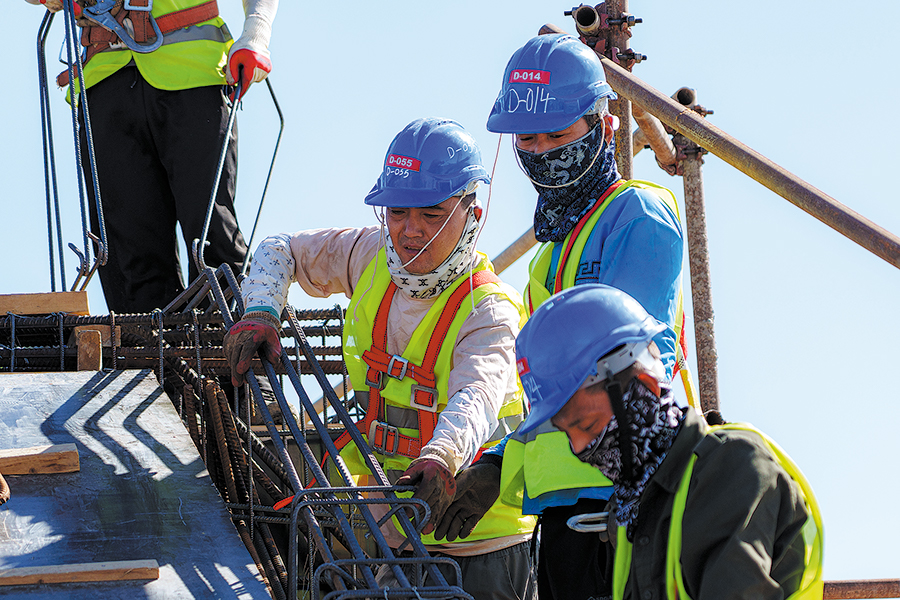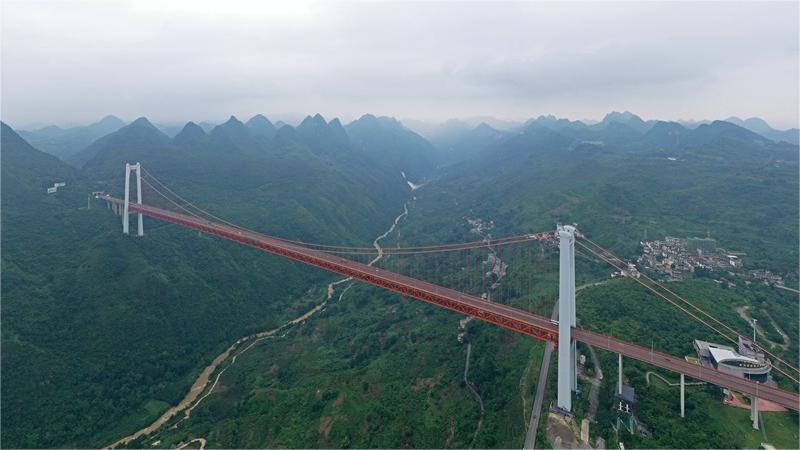SCO nations urged to strengthen ties

The Olympic City is under construction by China CAMC Engineering Co in Tashkent, Uzbekistan, a member of the Shanghai Cooperation Organization, on Jan 1. (Photo/Xinhua)
Since China National Chemical Engineering Group Corp announced the establishment of an integrated petrochemicals complex and infrastructure project in Kazakhstan last year, it has been providing crucial support in upgrading Kazakhstan's petrochemical industry and boosting the country's economic growth.
The project serves as a shining example of the increasing cooperation between China and Kazakhstan, and how such cooperation can be beneficial for members of the Shanghai Cooperation Organization.
Market observers said that, driven by the growth of the Belt and Road Initiative and their complementary industrial and trade structures, China and Kazakhstan are likely to expand business ties in areas such as transportation, finance, new infrastructure, clean energy, trade in services and manufacturing.
Unlike traditional infrastructure such as railways, roads and water conservancy, the concept of new infrastructure refers to critical facilities based on information technologies such as 5G, AI, the industrial internet and the internet of things. IoT describes networks of devices that can connect and exchange data.
China-Kazakhstan trade was worth 95.8 billion yuan ($13.2 billion) in the first four months of this year, a 23.3 percent increase year-on-year, China's General Administration of Customs said.
Crude oil, natural gas, minerals and agricultural products are Kazakhstan's main exports to China. China exports mainly manufacturing equipment, steel, vehicles, electronics, textiles, garments and household appliances to Kazakhstan.
Zhang Yongjun, secretary-general at the China Center for International Economic Exchanges in Beijing, said that amid increasing global economic pressures, China and Kazakhstan have contributed to ensuring the stability of Eurasian production cooperation and the smooth operation of the China-Europe freight train service.
They have also effectively addressed global energy security challenges, Zhang said.

Chinese builders work at the construction site of the Olympic City project in Tashkent on Aug 13 last year. (Photo/Xinhua)
With improved connectivity projects such as the Trans-Caspian International Transport Route and new railway express services, China and Kazakhstan still have room to further strengthen their co-development strategies and seek new areas for collaboration, especially in big data, finance, cross-border e-commerce, and green energy, he said.
The Trans-Caspian International Transport Route is a rail freight corridor linking China and the European Union through Central Asia, the Caucasus, Turkiye, and Eastern Europe, according to the Asian Development Bank Institute in Tokyo.
"Improved rail and road transportation networks between China and Kazakhstan will benefit everyone," said Zhou Nianli, a professor specializing in foreign trade at the University of International Business and Economics in Beijing. "China's significant demand for imports from Kazakhstan will drive industrial upgrading in Kazakhstan."
As China will take over the rotating chairmanship of the SCO later this year, experts and business leaders emphasized that strong business ties between group members will further advance economic collaboration within the SCO framework.
Zhou Mi, a researcher at the Chinese Academy of International Trade and Economic Cooperation in Beijing, said that initiatives such as the BRI have aligned with the SCO's agenda, promoting infrastructure development, trade, and investment across Eurasia. This integration has spurred economic growth and enhanced regional connectivity.
Member nations need to revitalize trade and investment, and expand openness and inter-connectivity, especially as the global economy faces geopolitical and geoeconomic headwinds, Zhou said.
Established in 2001, the SCO has grown from six members into a robust platform with 10 member states, two observer states, and 14 dialogue partners.
With all SCO members accelerating the implementation of the United Nations 2030 Agenda for Sustainable Development and reinforcing ties in areas of common interest such as production capacity, transport, finance, and telecommunications, the group's economic cooperation is poised to expand significantly.
Gao Lingyun, a researcher at the Institute of World Economics and Politics, affiliated with the Chinese Academy of Social Sciences in Beijing, said these efforts will broaden the scope of trade and investment activities, which have traditionally focused on energy, natural resources, infrastructure, and agriculture.
Digital trade, a crucial component of the digital economy, will help SCO member countries link information nodes across trade chains, minimizing information asymmetries and transaction costs, Gao said.
SCO member economies have joined the trend of digital development and reinforced regional economic cooperation in areas such as smart cities, telemedicine and manufacturing over the past several years, the Ministry of Commerce said.
Given that the economic growth of many SCO members heavily depends on the trade of commodities and agricultural products, it is practical for them to collaborate with companies in China to further diversify their trade portfolios, said Zhang Shaogang, vice-chairman of the China Council for the Promotion of International Trade in Beijing.
They can also work more closely together on environmental protection, climate change, biodiversity conservation and developing low-carbon economies to identify new growth points in the years to come, he said.
Photos
Related Stories
- SCO urges UN members to conduct general disarmament under effective int'l control -- initiative
- Climate agenda should not be excuse to restrict trade, investment -- SCO initiative
- Xi calls for bolstering SCO unity, cooperation
- Int'l system facing multiple threats, challenges unprecedented in modern history -- SCO initiative
- Ties with SCO partners praised
- SCO boosts agricultural bonds between China, Central Asia
Copyright © 2024 People's Daily Online. All Rights Reserved.









